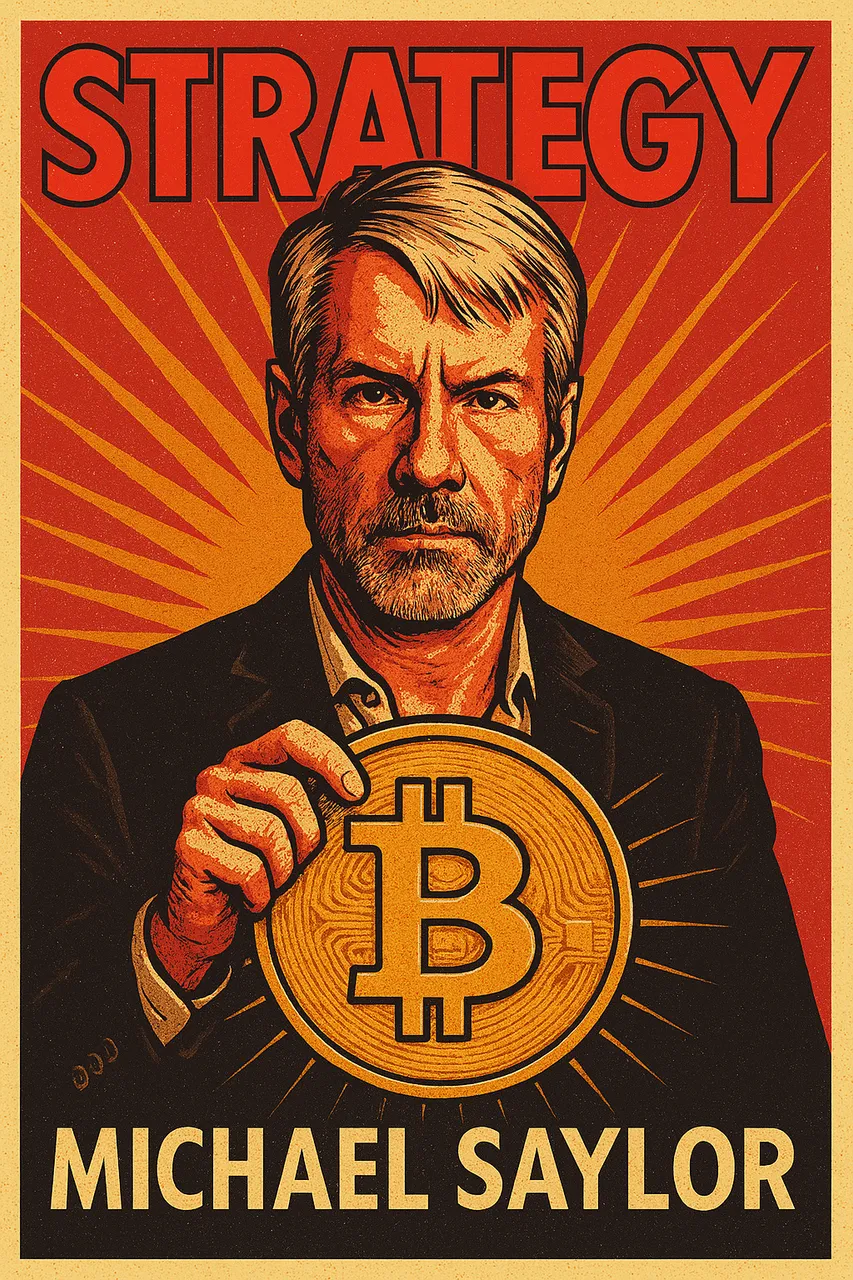
Curiously, this philosophy resonates a lot with that of today's "bitcoiners." They also believe that the best way to protect your money is to invest in an asset that appreciates at the same rate, or even more, than fiat money (euros or dollars) depreciates. But here comes the good and ironic part: John Bogle also thought that certain assets, like gold, were worthless because they did not generate interest or dividends. Sound familiar, right? It's the same argument many use today to dismiss Bitcoin investment.
Well, hold on tight, because life has an incredible sense of humor. For a few weeks now, the main shareholder of MicroStrategy, Michael Saylor's company, which is essentially a Bitcoin holding, is none other than Vanguard! Yes, the same Vanguard that does not offer Bitcoin ETFs to its clients. How is this possible? It turns out that MicroStrategy, due to its constant capital growth, has ended up in so many indexes that Vanguard's passive investment funds, by replicating these indexes, have accumulated more than 20 million MicroStrategy shares!
But the story doesn't end there. What will really blow your mind is Michael Saylor's plan. "Traditional" companies that make up the indexes usually reduce or contain their capitalization through share buybacks or by paying dividends. MicroStrategy does the exact opposite. Instead of reducing capital, it increases capital as quickly as possible. How? By issuing new shares to buy more Bitcoin. As the Bitcoin they hold increases in value, they issue even more shares! Just five years ago, MicroStrategy had a market capitalization of 10 billion dollars; today, it is 140 billion! This means that the passive investor now invests 100 times more money in its shares, simply because MicroStrategy weighs 100 times more in the index than it did five years ago.
Saylor has managed to "hack the system" by packaging Bitcoin into a stock. And the next big step is the possible inclusion of MicroStrategy in the famous S&P 500 index, something that could happen in the second half of this year. The company already meets the essential requirements: its capitalization is close to 130 billion dollars (the minimum is 18 billion), it has one of the most liquid stocks in the market, and under the new accounting rules that allow Bitcoin to be valued at market price, it more than meets the necessary profitability! In fact, its next report is expected to show profits of about $5 per share. The probability of its inclusion is 91%.
If this happens, Vanguard's VOO ETF, the largest in the world, and all other funds replicating the S&P 500, will immediately have to acquire MicroStrategy shares. It is estimated that this could imply a capital inflow of between 4.6 billion and 11.5 billion dollars just from these index funds. And not only that, there will also be investments from speculators who will buy MicroStrategy around the announcement.
The big difference with companies like Tesla, which also experienced an increase in volume when entering the index, is that MicroStrategy, after this price increase, will issue new shares to buy even more Bitcoin. This could create a multiplier effect, raising the value of its shares and allowing the same play over and over again. In fact, Saylor has already approved a change in his company's bylaws to issue up to 10.3 billion more shares, 30 times more than the current ones!
This is a "positive capital creation cycle" that opposes the "negative capital reduction cycle" in which most companies in stock market indices currently find themselves. This cycle will continue as long as Bitcoin outperforms these indices, which is predictable, since companies have many risks (counterparty, currency, legal, geopolitical, energy) that the Bitcoin asset does not have.
In short, if Bitcoin continues to outperform companies, Bitcoin treasury companies like MicroStrategy will grow even more, issue new shares, and capture more and more space within the indices. So, in the not-too-distant future, when you go to buy that Bogle fund that replicates the stock market, you might end up with a lot of shares of companies that hoard an asset that yields neither dividends nor coupons!
If you are interested in delving deeper into how these dynamics are changing the investment landscape, I invite you to research more about index funds and the impact of digital assets like Bitcoin on the traditional market.
